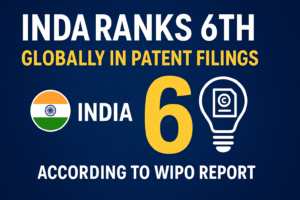Big Tech is pushing the limits of innovation with patents that sound more like science fiction than science. Recent filings reveal a race to develop technologies that can read thoughts, interpret emotions, and even control dreams. These patents show where the future of human–machine interaction may be headed — and why it worries privacy experts.
Companies such as Google, Meta, Microsoft, and Samsung are investing heavily in brainwave and neural interface research. Their goal is to create seamless communication between human thoughts and digital systems. Some patents describe sensors that can detect a user’s emotional state through brain activity. Others aim to translate thoughts into digital commands without speaking or typing.
One example is the U.S. patent US20110298706A1, titled “Brainwave Actuated Apparatus.” It outlines a device that reads brain signals to control electronic actions. Meta, formerly Facebook, has filed similar patents for mind-controlled interfaces in its augmented and virtual reality projects. These systems could let users navigate digital worlds using only their thoughts.
Even more astonishing is a patent called US20160119391A1, the “Dream Sharing, Visualization, and Realization Platform.” It proposes a technology that records and analyzes dreams to create visual or virtual representations. The system could also use this subconscious data for personalized advertising or market research. The patent even suggests waking a person with an alarm that can be turned off only by describing their dream.
Experts say these inventions represent the next frontier of data collection. Neural data — information drawn directly from the brain — is more personal than any biometric or behavioral data used today. Scientists and privacy advocates warn that such data must be protected with strict laws before it reaches commercial use.
Ethicists fear misuse of brain and dream data for manipulation or surveillance. Governments around the world have not yet created clear rules for neural interfaces. Without regulation, ownership and consent issues could become major challenges.
Despite the risks, tech giants see huge potential. Brain–computer interfaces could revolutionize communication, healthcare, gaming, and marketing. Imagine controlling a smartphone, designing art, or communicating feelings — all through thought.
However, industry watchers urge caution. “Filing a patent doesn’t mean the technology is ready or even possible yet,” one analyst noted. “But it shows where Big Tech wants to go — inside the human mind.”
The battle for these futuristic patents is not just about innovation. It’s about who will own the next generation of human experience — our thoughts, emotions, and dreams.





